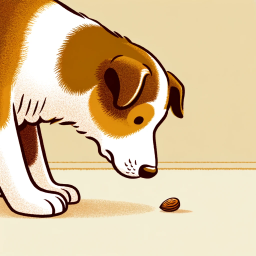Can Dogs Eat Sweet Potatoes? all you neeD TO know

“Can Dogs Eat Sweet Potatoes?” is a frequent question in the pet care world, as dog owners often wonder about the safety of feeding raw sweet potatoes to their furry companions. While sweet potatoes are recognized for their nutritional benefits in human diets, the guidelines for canines can differ significantly. This article explores the topic, examining the potential health benefits and risks associated with incorporating sweet potatoes into a dog’s diet.
Can Dogs Eat Sweet Potatoes?
Nutritional Profile of Sweet Potatoes
Sweet potatoes are a rich source of dietary fiber, vitamins (especially vitamin A, C, and B6), and minerals like potassium and manganese. They also contain antioxidants which are beneficial for overall health. These nutrients are as beneficial for dogs as they are for humans, contributing to a healthy digestive system, vision, and immune function.
Raw vs. Cooked Sweet Potatoes
Here is a table that differentiates the effects and benefits of feeding raw versus cooked sweet potatoes to dogs:
| Aspect | Raw Sweet Potatoes | Cooked Sweet Potatoes |
|---|---|---|
| Digestibility | Hard to digest, may cause gastrointestinal issues | Easier to digest, gentler on stomach |
| Choking Hazard | High (hard and tough texture) | Low (soft and mashable texture) |
| Toxin Content (Solanine) | Higher levels, potential toxicity | Reduced significantly, safer |
| Nutrient Absorption | Lower (some nutrients less bioavailable) | Higher (increased bioavailability of nutrients like beta-carotene) |
| Overall Safety | Not recommended due to risks | Safe when served plain and in moderation |
| Recommended Usage | Avoid feeding raw sweet potatoes to dogs | Can be included as a nutritious treat in small amounts |
sweet potatoes vs regular potatoes for dogs
Here’s a comparison table listing the effects and benefits of Sweet Potatoes versus Regular Potatoes for dogs:
| Aspect | Sweet Potatoes | Regular Potatoes |
|---|---|---|
| Nutritional Value | Rich in vitamins A, C, B6, and minerals like potassium and manganese | Good source of vitamins C, B6, and minerals |
| Fiber Content | High in dietary fiber | Moderate fiber content |
| Vitamin Content | High (especially Beta-Carotene, converting to Vitamin A) | Moderate (lower than sweet potatoes) |
| Toxin Concerns | Contains solanine, but less than regular potatoes | Contains higher levels of solanine, more toxic risk |
| Digestibility | Easier to digest when cooked | Requires cooking for safe consumption. |
| Sugar Content | Higher natural sugars | Lower natural sugars |
| Overall Suitability for Dogs | Safe and beneficial when cooked and served in moderation | Can be safe when cooked and served plain, but less beneficial than sweet potatoes |
| Caloric Content | Moderately high in calories | High in calories |
| Antioxidant Properties | Rich in antioxidants | Some antioxidant properties, but less than sweet potatoes |
| Suitability for Sensitive Stomachs | Generally good for sensitive stomachs when cooked | Can be harder on sensitive stomachs, especially if not cooked properly |
| Risk of Obesity | Can contribute to weight gain if fed in large amounts | Higher risk of contributing to obesity due to higher starch content |
| Recommended Preparation | Best served cooked, mashed, or as dehydrated treats | Should be cooked without any seasonings or additives |
Homemade Sweet Potato Dog Treats: Recipes and Tips
Homemade sweet potato dog treats are a nutritious and delicious way to reward your furry friend. Packed with vitamins, fiber, and natural sweetness, these treats are a healthier alternative to many store-bought options. Below are some simple recipes and essential tips for making sweet potato treats at home.
1. Basic Sweet Potato Chews
Ingredients:
- 1 large sweet potato, washed and dried
Instructions:
- Preheat your oven to 250°F (120°C).
- Slice the sweet potato into even slices, about 1/4 inch thick.
- Place the slices on a baking sheet lined with parchment paper.
- Bake for 2.5 to 3 hours, turning halfway through, until they are dry and slightly crispy.
- Let them cool completely before serving.
2. Sweet Potato and Peanut Butter Cookies
Ingredients:
- 1 medium sweet potato, cooked and mashed
- 2 tablespoons natural peanut butter (xylitol-free)
- 2 cups whole wheat flour (or a grain-free alternative)
Instructions:
- Preheat oven to 350°F (175°C).
- Mix the mashed sweet potato and peanut butter in a bowl.
- Gradually add the flour, forming a dough.
- Roll out the dough and cut into shapes with cookie cutters.
- Bake for 35-40 minutes or until crispy.
- Cool before serving.
Tips for Making Sweet Potato Dog Treats
- Thickness: For chewier treats, slice the sweet potatoes thicker; for crispier ones, slice them thinner.
- No Additives: Ensure there’s no added salt, spices, or sweeteners.
- Storage: Store in an airtight container. They last longer in the refrigerator.
- Watch for Allergies: Always monitor your dog for any allergic reactions when trying new treats.
- Moderation: Treats should only make up a small portion of your dog’s diet.
The Role of Sweet Potatoes in Managing Dog Weight
Sweet potatoes are increasingly popular in canine diets, especially for weight management. here is how sweet potatoes can be beneficial for dogs looking to maintain or lose weight and provides tips for incorporating them into your dog’s diet.
Role in Weight Management
- Caloric Content: Sweet potatoes have fewer calories than many commercial treats, making them a good option for weight management.
- Satiety: The fiber content helps in controlling hunger, reducing the urge for overeating.
- Digestive Health: A healthy digestive system is crucial in managing weight effectively.
Incorporating Sweet Potatoes in Dog Diets
- Portion Control: Use small amounts to prevent calorie overload.
- As a Treat Substitute: Replace high-calorie treats with sweet potato snacks.
- Mixing with Regular Food: Add small, cooked pieces to regular dog food for extra fiber and nutrients.
- Balanced Diet: Ensure the overall diet is balanced with protein, fats, and other essential nutrients
Can Puppies Eat Sweet Potatoes?
Introducing new foods to a puppy’s diet should be done with care. Sweet potatoes can be a healthy addition, but there are important considerations to take into account.
Nutritional Benefits
- Rich in Vitamins: Sweet potatoes are high in vitamins A, B6, and C.
- Dietary Fiber: Good for digestive health.
- Low Fat: Suitable for a growing puppy’s diet.
Considerations for Puppies
- Age Appropriateness: Puppies can start eating sweet potatoes once they begin consuming solid food, usually around 8-10 weeks of age.
- Serving Size: Start with small amounts to avoid stomach upset.
- Preparation: Sweet potatoes should be cooked (boiled or baked) and served plain, without any seasonings or additives.
- Allergy Watch: Monitor for any signs of allergies or digestive issues.
Incorporating Sweet Potatoes in a Puppy’s Diet
- Mix with Regular Food: Introduce cooked sweet potatoes mixed with their regular puppy food.
- As a Treat: Use small pieces of cooked sweet potato as a healthy treat.
- Consistency: Ensure the sweet potato is soft and easy to chew.
Age-Specific Dietary Needs of a Dog
Here’s a table indicating the Age-Specific Dietary Needs of a dog:
| Age Group | Protein Needs | Fat Needs | Carbohydrate Needs | Calcium & Phosphorus | Vitamins & Minerals |
|---|---|---|---|---|---|
| Puppy (0-1 year) | High (growth and development) | Higher (supports growth) | Moderate (for energy) | Higher (for bone growth) | Essential for development |
| Adult (1-7 years) | Moderate (maintenance of muscle mass) | Moderate (depending on activity level) | Varies (based on activity and breed) | Balanced ratio for bone maintenance | Important for overall health |
| Senior (7+ years) | Lower than adults (varies with health condition) | Lower (reduced activity, risk of obesity) | Varies (often lower due to decreased activity) | Adjusted if needed (based on bone health) | Important, with adjustments for age-related changes |
Allergies and Sweet Potatoes: Signs to Watch Out for in Dogs
While sweet potatoes are generally safe and nutritious for dogs, like any food, they can cause allergic reactions in some pets. This guide will help you understand the signs of sweet potato allergies in dogs and what to do if you suspect your dog is affected.
Understanding Food Allergies in Dogs
Food allergies in dogs can manifest in various ways and may be challenging to diagnose. Common allergens include beef, dairy, wheat, egg, chicken, lamb, soy, pork, rabbit, and fish, but dogs can develop allergies to any food, including sweet potatoes.
Common Signs of Food Allergies
- Skin Irritations: Itchy skin, redness, rashes, or hives.
- Gastrointestinal Issues: Vomiting, diarrhea, or excessive gas.
- Ear Infections: Frequent or recurring ear inflammation.
- Paw Licking or Chewing: Due to itchy paws.
- Chronic Licking: Targeting the same area, leading to skin damage.
Sweet Potato Allergy Signs
- Similar to general food allergies, watch for skin irritations, gastrointestinal discomfort, and changes in behavior after eating sweet potatoes.
- Symptoms can appear immediately or after a prolonged period of regular consumption.
Diagnosis and Treatment
- Veterinary Consultation: If you suspect an allergy, consult with a veterinarian. They may recommend an elimination diet to isolate the allergen.
- Elimination Diet: This involves feeding your dog a simplified diet and gradually reintroducing foods to identify the allergen.
- Medical Treatment: Depending on the severity, the vet might prescribe medications to alleviate symptoms.
Preventing Allergic Reactions
- Introduce New Foods Gradually: When adding sweet potatoes or any new food to your dog’s diet, start with small amounts and monitor for adverse reactions.
- Balanced Diet: Ensure a balanced diet with various nutrients to support overall health and reduce the risk of allergies.
- Regular Check-ups: Regular veterinary check-ups can help identify and manage allergies effectively.
How Much Sweet Potato Can a Dog Eat?
Sweet potatoes are a nutritious treat for dogs, but like all good things, they should be given in moderation. This guide focuses on the appropriate portion sizes of sweet potatoes for dogs to ensure they are a healthy part of their diet.
Factors Influencing Portion Size
- Dog’s Size: Larger dogs can consume more than smaller breeds.
- Activity Level: More active dogs may require more calories.
- Health Conditions: Dogs with diabetes or weight issues should have limited carbohydrate intake.
- Age: Puppies and senior dogs have different nutritional needs and may require adjusted portions.
General Portion Guidelines
- Small Dogs (under 30 lbs): About 1 tablespoon of cooked, mashed sweet potato.
- Medium Dogs (30-50 lbs): Approximately 2 tablespoons.
- Large Dogs (over 50 lbs): Up to 1/4 cup, depending on size and dietary needs.
Serving Recommendations
- Frequency: Sweet potatoes should be an occasional treat, not a daily supplement.
- Preparation: Cook without any added sugars, spices, or fats. Mashing or pureeing can make it easier to mix with regular dog food.
- Integration: Introduce sweet potatoes gradually into their diet and monitor for any digestive issues.
Monitoring and Adjustments
- Watch for Weight Gain: Adjust portions if you notice weight gain in your dog.
- Check Stool Consistency: Too much sweet potato can cause loose stools.
- Consult a Veterinarian: For specific dietary recommendations, especially for dogs with health concerns.
Sweet Potatoes for Dogs with Sensitive Stomachs
Dogs with sensitive stomachs require carefully selected diets to avoid digestive issues. Sweet potatoes, known for their nutritional benefits, can be a good option for such dogs when prepared correctly.
Nutritional Benefits of Sweet Potatoes
- High in Dietary Fiber: Aids in healthy digestion and firming up stools.
- Rich in Vitamins: Contains vitamins A, B6, and C, which are beneficial for overall health.
- Low in Fat: Suitable for dogs that are prone to digestive upset due to fatty foods.
Why Sweet Potatoes for Sensitive Stomachs?
- Easily Digestible: When cooked, they are soft and easy for dogs to digest.
- Natural and Gentle: Unlike some commercial dog foods, sweet potatoes are natural and free of additives that might upset a sensitive stomach.
- Versatility: Can be prepared in various ways to suit your dog’s preference and tolerance.
Preparing Sweet Potatoes for Sensitive Stomachs
- Cooking Method: Boil or bake sweet potatoes without any added spices, seasonings, or oils.
- Pureed or Mashed: Easier to digest and mix with their regular food.
- Moderation is Key: Start with small amounts to ensure it doesn’t upset your dog’s stomach.
Incorporation into Diet
- Gradual Introduction: Introduce sweet potatoes slowly into your dog’s diet to monitor their reaction.
- Mix with Regular Food: Combine with their usual food to provide a balanced diet.
- Watch for Adverse Reactions: Look out for signs of allergic reactions or intolerance, such as itching, diarrhea, or vomiting.
Alternatives and Considerations
- Other Vegetables: Pumpkin and carrots can also be beneficial for dogs with sensitive stomachs.
- Consultation with Vet: Always consult with a veterinarian before making significant changes to your dog’s diet, especially if they have a sensitive stomach.
Pros and Cons of Sweet Potatoes for Active and Athletic Dogs
Here’s a table listing the pros and cons of sweet potatoes for active and athletic dogs:
| Aspect | Pros | Cons |
|---|---|---|
| Energy Source | Sustained energy from complex carbohydrates | May lead to weight gain if overfed |
| Digestive Health | High in dietary fiber aiding in digestion | Excess may cause digestive upset |
| Weight Management | Low in fat, helps in maintaining healthy weight | Not sufficient as the sole energy source for highly active dogs |
| Muscle Health | Contains nutrients supporting muscle health | Does not provide high levels of protein needed for muscle recovery |
| Hydration | Moisture content aids in hydration | Cannot replace water for hydration needs |
| Allergic Reactions | Rarely causes food allergies | Possible, though uncommon, allergic reactions |
can dogs eat sweet potato fries?
Sweet potato fries are a popular snack among humans, but when it comes to sharing them with our canine friends, there are some important considerations. This guide will explore whether it’s safe for dogs to eat sweet potato fries and the best practices for feeding them.
having known that Sweet potato are low in fat, making them a healthier choice than regular potatoes.
Risks Associated with Sweet Potato Fries
- Cooking Oil and Fats: Fries are usually cooked in oil, which can be hard for dogs to digest and lead to obesity or pancreatitis.
- Salt and Seasonings: Seasonings and salt commonly used on fries are not suitable for dogs and can be harmful.
- Choking Hazard: The shape and size of fries can pose a choking risk, especially for small dogs.
Safe Alternatives
- Homemade Sweet Potato Treats: Bake or dehydrate sweet potato slices without any oil, salt, or seasonings. These are much safer for dogs.
- Cooked Sweet Potato: Plain, cooked sweet potatoes (boiled or baked) can be a healthy treat in moderation.
Serving Suggestions
- Moderation: Even plain sweet potatoes should be given in moderation due to their sugar and carbohydrate content.
- Size Appropriateness: Cut them into appropriate sizes to prevent choking hazards.
Conclusion
Sweet potatoes can be a nutritious and stomach-friendly option for dogs with digestive sensitivities. Proper preparation and gradual introduction are key to incorporating them safely into your dog’s diet. Always keep an eye on your dog’s reaction to new foods and consult your vet for tailored dietary advice.
faq
1. Can Dogs Eat Sweet Potatoes?
- Answer: Yes, dogs can eat sweet potatoes. They are a nutritious addition to a dog’s diet when prepared properly and served in moderation.
2. Are Sweet Potatoes Good for Dogs?
- Answer: Sweet potatoes are beneficial for dogs as they are high in dietary fiber, vitamins A, C, and B6, and minerals like manganese. They are also low in fat.
3. How Should Sweet Potatoes be Prepared for Dogs?
- Answer: Sweet potatoes should be cooked (boiled or steamed) without any added salt, sugar, or spices. Raw sweet potatoes can be hard to digest for dogs. Always remove the skin, as it can be tough for them to chew and digest.
4. Can Dogs Eat Raw Sweet Potatoes?
- Answer: It is not recommended to feed raw sweet potatoes to dogs. They can be difficult to digest and may cause intestinal blockage.
5. How Much Sweet Potato Can I Give My Dog?
- Answer: Sweet potatoes should only make up a small percentage of a dog’s diet. A few small cubes as a treat are usually sufficient, depending on the size of the dog.
6. Are There Any Risks in Feeding Sweet Potatoes to Dogs?
- Answer: In excessive amounts, sweet potatoes can cause digestive issues and contribute to obesity. They also contain oxalates that can lead to kidney and bladder stones.
7. Can Sweet Potatoes be a Regular Part of a Dog’s Diet?
- Answer: Sweet potatoes can be a regular part of a dog’s diet if given in moderation and as part of a balanced diet.
8. Can Diabetic Dogs Eat Sweet Potatoes?
- Answer: Sweet potatoes have a high glycemic index. Consult with a veterinarian before giving sweet potatoes to a diabetic dog.
9. Are Sweet Potatoes Better than Regular Potatoes for Dogs?
- Answer: Sweet potatoes are often considered a healthier option due to their higher fiber content and lower glycemic index compared to white potatoes.
10. Can Puppies Eat Sweet Potatoes?
Answer: Puppies can eat sweet potatoes in small, well-cooked pieces. However, their primary diet should be a high-quality puppy food.
11. How Can I Include Sweet Potatoes in My Dog’s Diet?
Answer: Sweet potatoes can be added to homemade dog food, given as small cooked pieces, or used in homemade dog treats.
12. Are All Parts of the Sweet Potato Plant Safe for Dogs?
Answer: Only the cooked sweet potato itself is safe. The leaves and vines of the sweet potato plant can be toxic to dogs.
Related Posts:
Read More: Why Does My Dog Open His Mouth When I Pet Him? 7 Reasons
Read More: Why Does My Dog Keep Sniffing My Legs: 5 Common Reasons
Read More: Why Does My Dog Bite Me In The Morning? 2 Way To safe From
Read More: Why Are My Dogs Balls Black? Best Number 1 Answer
Read More: Why Do Dogs Like Peanut Butter?
Read More: Why Does My Dog Nibble My Ear? 10 Reasons
Read More: Why Does My Dog Move Its Bed Around?
Read More: Why Does My Dog Bring Me His Food?
Read More: Why Does My Dog Lay His Head Over My Neck? 7 Reasons





